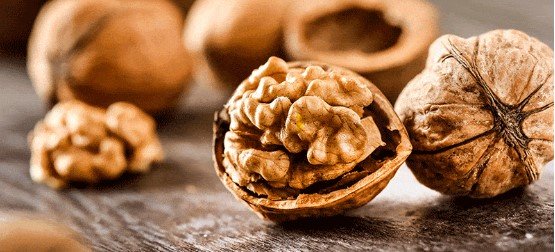Walnuts Supplier AGRO KORN APS
Introduction to Walnuts: Origins and Characteristics by Walnuts Supplier AGRO KORN APS
Walnuts, known botanically as Juglans, are intriguing fruits that grow on walnut trees. Botanically classified as round, single-seed stone fruits, these nuts encapsulate their seeds within a hard shell. The ripening period for walnuts typically falls between September and November in the northern hemisphere. A key distinguishing feature of walnuts is their hard, brown, and wrinkled shell, which is encased by a thicker, outer husk.
Commercial walnuts often present with a shell divided into two segments, although there are instances where the shells may form with three or even four segments. This variability in shell segmentation adds another layer to their fascinating botanical nature. Moreover, while various types of walnut trees exist globally, the Persian or English walnut (Juglans regia) remains the most commercially valued and widely recognized.
The history of walnuts dates back to ancient civilizations. Over centuries, they have been cultivated and consumed by various cultures, each attributing unique significance to their uses. The English walnut, originally native to Persia, spread across Europe and ultimately to the Americas, thanks to trade routes and explorers’ endeavors.
Walnuts’ global migration has led to the development of distinct characteristics among different varieties. Nonetheless, it is the English walnut that has earned acclaim for its versatile culinary and nutritional benefits. Apart from Juglans regia, other notable varieties include the Black walnut (Juglans nigra), which is native to North America and distinguished by a more robust, earthy flavor and tougher shell.
In conclusion, walnuts’ rich history, diverse characteristics, and significant economic value make them an interesting topic of study. Their botanical origins and the journey of the Persian walnut across continents highlight the importance of these nuts in varying cultural contexts. As we delve deeper into the marvel of walnuts, their profound agricultural and nutritional impact becomes increasingly evident.
Nutritional Profile of Walnuts – by Walnuts Supplier AGRO KORN APS

Walnuts are a powerhouse of nutrients, offering a comprehensive profile that supports numerous aspects of health. According to data from the USDA, a 100-gram serving of walnuts provides an impressive 654 calories, making it a dense source of energy. One of the standout features of walnuts is their high total fat content, with 65 grams, accounting for 100% of the Daily Value (DV). This high-fat content is predominantly composed of polyunsaturated and monounsaturated fats, which are beneficial for heart health.
Walnuts are also a significant source of protein, delivering 15 grams per 100 grams, which is 30% of the DV. This makes them an excellent plant-based protein option, especially valuable for vegetarians and vegans. In terms of carbohydrate content, walnuts contain 14 grams (4% DV), with dietary fiber contributing 7 grams, which is 28% of the DV, making them a good source for digestive health. Notably, walnuts have zero cholesterol and minimal sodium (2 mg, 0% DV), which align well with heart-healthy dietary guidelines.
Minerals are another highlight in the nutritional profile of walnuts. A 100-gram serving provides 441 mg of potassium (12% DV), an essential mineral that supports muscle function and heart health. Walnuts also contain trace amounts of other vital minerals such as calcium, iron, magnesium, and phosphorus, all contributing to various bodily functions including bone health, oxygen transport, and enzyme activation.
The Daily Values (% DV) mentioned are based on a standard 2,000-calorie diet. However, it is important to note that individual nutritional requirements can vary based on factors like age, sex, weight, and overall health. Understanding these nutritional metrics helps in appreciating the role of walnuts in a well-balanced diet, offering both macro and micronutrients essential for maintaining good health.
Health Benefits of Including Walnuts in Your Diet – by Walnuts Supplier AGRO KORN APS
Walnuts are widely recognized for their robust nutritional profile, offering an array of health benefits that make them a valuable addition to any diet. One of the most notable advantages of walnut consumption is their contribution to cardiovascular health. Rich in heart-healthy fats, especially omega-3 fatty acids, walnuts help reduce inflammation and improve blood lipid profiles. Scientific studies have shown that regular intake of walnuts can lower bad cholesterol (LDL) and increase good cholesterol (HDL), thereby reducing the risk of heart disease.
Beyond cardiovascular health, walnuts play a significant role in supporting brain function. They contain a high concentration of antioxidants and anti-inflammatory compounds, including polyphenols and flavonoids, which protect brain cells from oxidative stress and inflammation. Research indicates that these properties can enhance cognitive function, improve memory, and potentially delay the onset of neurodegenerative diseases such as Alzheimer’s.
Walnuts are equally beneficial for gut health. They are a good source of dietary fiber, which promotes healthy digestive processes and fosters a balanced gut microbiota. Studies suggest that walnut consumption can increase the production of beneficial gut bacteria, contributing to overall digestive well-being and improved nutrient absorption.
Weight management is another area where walnuts shine. Despite their calorie density, walnuts can aid in weight control. Their combination of healthy fats, protein, and fiber contributes to satiety, helping individuals feel full longer and reducing the likelihood of overeating. This makes walnuts a valuable snack for those aiming to maintain or achieve a healthy weight.
There is also compelling evidence suggesting that walnuts possess cancer-fighting properties. Walnuts contain bioactive compounds, such as phytosterols and gamma-tocopherol, that may inhibit the growth of various cancer cells. Research in this domain is ongoing, but preliminary findings highlight the potential of walnuts in cancer prevention strategies.
Incorporating walnuts into a balanced diet seems a wise choice given their multifaceted health benefits. Nutrition experts often recommend a daily serving of about 1 ounce (28 grams) of walnuts, which is roughly a small handful. This amount is sufficient to reap the numerous advantages walnuts provide without significantly impacting overall caloric intake.

Sourcing and Storing Walnuts: Best Practices – by Walnuts Supplier AGRO KORN APS
When it comes to sourcing high-quality walnuts, it’s essential to select them from reputable suppliers such as Agro Korn Aps. Opting for a trusted supplier ensures you receive walnuts that are fresh, free from contaminants, and rich in their natural nutritional value. When evaluating walnuts, there are several indicators of freshness you should examine. Fresh walnuts typically have a consistent color and feel firm to the touch. Avoid walnuts with shriveled shells, irregular sizes, or cracks, as these may be signs of oxidation or infestation.
Purchasing either shelled or unshelled walnuts depends on your needs, but there are advantages to both. Unshelled walnuts generally have a longer shelf life and protect the nut from direct exposure to air, which can hasten rancidity. Shelled walnuts, on the other hand, offer convenience and are ready to use in recipes immediately. Regardless of your choice, ensure the walnuts have a pleasant, nutty aroma and no off-putting smells which could suggest mold or spoilage.
Storing walnuts appropriately is paramount to maintaining their freshness and nutritional integrity. Walnuts should be kept in a cool, dry place, away from direct sunlight. If you’re storing walnuts for an extended period, refrigeration is highly recommended. Placing walnuts in airtight containers before refrigerating can further safeguard them from moisture and air exposure, which are primary culprits for rancidity.
For prolonged storage, walnuts can also be frozen. Frozen walnuts can retain their quality for up to a year, making them an excellent option for bulk purchases. When you’re ready to use them, simply thaw what you need without compromising their taste or texture. Proper storage not only extends the shelf life of walnuts but also preserves their rich nutrients, ensuring you enjoy their full health benefits.
Here is a list of effective keywords for walnut suppliers:
- Walnuts Supplier
- Wholesale Walnut Supplier
- Bulk Walnut Supplier
- Organic Walnut Supplier
- Walnut Distributor
- Walnuts Supplier
- Premium Walnut Supplier
- Walnut Exporter
- Wholesale Nuts Supplier
- Bulk Organic Walnuts
- Walnut Wholesale Distributor
- Walnuts Supplier

Walnuts Supplier AGRO KORN APS - Walnuts Supplier AGRO KORN APS - Walnuts Supplier AGRO KORN APS- Walnuts Supplier AGRO KORN APS - Walnuts Supplier AGRO KORN APS - Walnuts Supplier AGRO KORN APS


Reviews
There are no reviews yet.